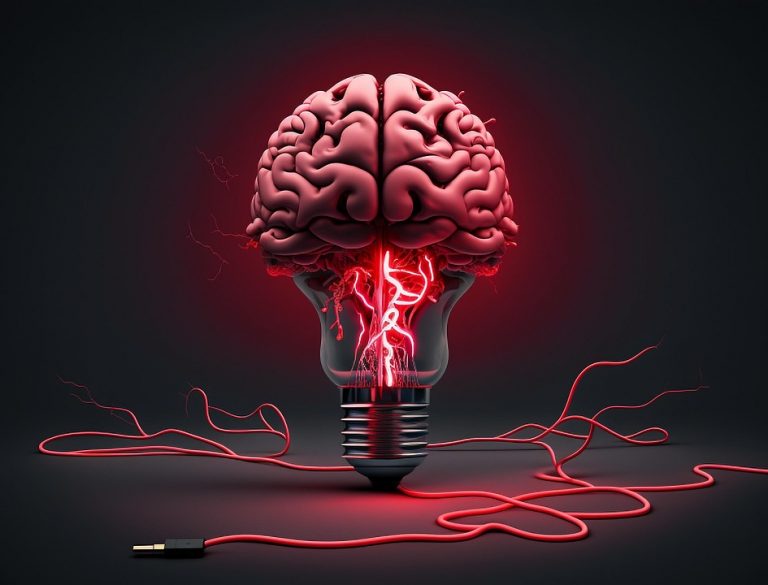Brain power spices are a small, fragrant army that your kitchen already owns. (k1) They are the dried treasures—turmeric, rosemary, cinnamon, sage, black pepper, cloves, saffron—that nudge your memory, sharpen attention, and fight the slow erosion of focus that creeps in with age. (k2) If you want sharper recall, fewer foggy moments, and a brain that hums instead of sputters, these herbs and seasonings matter. (k3)
I won’t sell you a miracle. I’ll give you plain truth, rooted in science and common sense. (k4) The right spice at the right time changes chemistry. It calms inflammation, enhances blood flow, and tunes synapses so your memories land and stick. (k5) You’ll read studies, meet practical tips, and leave with seven ways to use these healing flavors in your daily life. (k6)
Contents
- What Do Brain Power Spices Do For Memory?
- How To Use This Article
- 1. Turmeric: Add Curcumin To Your Routine
- 2. Cinnamon: Sweet Memory Without Sugar
- 3. Rosemary: The Scent Of Recall
- 4. Sage: Time-Tested Memory Herb
- 5. Black Pepper: The Bioavailability Booster
- 6. Cloves: Antioxidant Armor
- 7. Saffron: The Delicate Mood Lifter
- Putting It All Together: A Daily Ritual
- Safety, Dosage, And What To Watch For
- The Science Behind The Flavor
- How To Track Your Progress
- Bottom Line
- FAQ
What Do Brain Power Spices Do For Memory?
These spices do three dependable things for your brain. First, they reduce inflammation. Second, they protect neurons from damage. Third, they improve communication between brain cells. (k7)
Inflammation in the brain wears away patience and recall. Certain compounds—curcumin in turmeric, eugenol in cloves, and piperine in black pepper—quiet that fire. They act like a gentle broom, clearing the pathways so your thoughts move. (k8) That’s not guesswork. Research from universities and medical centers shows how these compounds act at the cellular level, protecting memory circuits and supporting long-term brain health. (k9)
How To Use This Article
Think of this as a toolkit. You’ll get seven practical, evidence-backed ways to fold brain-friendly spices into real life. (k10) Each tip includes a quick explanation, a real-world use, and a research-backed reason to try it. No fluff. No complicated rituals. Just simple habits that stack up month after month.
1. Turmeric: Add Curcumin To Your Routine
Turmeric is the headline act. Its active ingredient, curcumin, has been studied for memory support and for reducing brain inflammation. Studies at medical centers have explored curcumin’s effect on cognitive function and found promising results for attention and mood when taken regularly. (k11)
How to use it: Add freshly ground turmeric to soups, golden milk, or scrambled eggs. Pair turmeric with a pinch of black pepper—piperine boosts absorption dramatically. Or use a standardized curcumin supplement when you need concentrated support. (k12)
Quick Tip
Make a turmeric paste on Sunday. Mix turmeric, black pepper, and a fat like coconut oil. Store in a jar. Spoon a teaspoon into smoothies or tea when you want a brain lift.
2. Cinnamon: Sweet Memory Without Sugar
Cinnamon isn’t just comforting; it stabilizes blood sugar and helps steady the mind. Spikes and crashes in glucose make you scatterbrained. Cinnamon helps even that out. Clinical nutrition research has linked cinnamon with improved attention and processing speed in small trials. (k13)
How to use it: Sprinkle cinnamon on yogurt, roast vegetables tossed with it, or stir it into oatmeal. Swirl it into coffee instead of sugar for a less jittery pick-me-up.
3. Rosemary: The Scent Of Recall
Rosemary earns its reputation for scent-linked memory. Aromatherapy studies find that inhaling rosemary essential oil can improve prospective memory—your ability to remember actions you plan to take. Even a few deep breaths at the stove can prime the mind. (k14)
How to use it: Add fresh rosemary to roasted potatoes or chicken. Keep a sprig simmering in a pot of water while you cook. For focused work, breathe the aroma from a diffuser during short creative sprints.
4. Sage: Time-Tested Memory Herb
Sage is a kitchen classic with decades of herbal use for cognitive clarity. Controlled trials in older adults show sage may improve memory and attention. The herb interacts with neurotransmitter systems in ways that encourage focus and reduce forgetfulness. (k15)
How to use it: Use sage in stuffing, beans, or brown butter sauces. Brew a cup of sage tea when you need to calm down and collect your thoughts before a meeting or study session.
5. Black Pepper: The Bioavailability Booster
Black pepper gets less glory than it deserves. Its compound piperine increases the absorption of other brain-beneficial molecules—most famously curcumin from turmeric. Even small amounts of black pepper make other spices work harder for your memory. (k16)
How to use it: Add freshly cracked pepper to salads, roasted veggies, and most savory dishes. A pinch with turmeric in your smoothies or teas will pay you back in better nutrient uptake.
6. Cloves: Antioxidant Armor
Cloves pack a punch of antioxidants that protect the brain from oxidative damage, a key driver of age-related memory decline. Lab studies show clove compounds reduce markers of oxidative stress and support healthy brain cells. (k17)
How to use it: Use ground cloves sparingly in stews, slow-cooked meats, and baked goods. You can steep whole cloves in tea or mulled cider for a warming, brain-friendly beverage.
7. Saffron: The Delicate Mood Lifter
Saffron is expensive, but a little goes far. Clinical trials have shown saffron improves mood and has effects similar to standard antidepressants in mild to moderate depression—mood that’s kinder to memory and motivation. Healthy mood fosters stronger learning and recall. (k18)
How to use it: Infuse a pinch of saffron in warm milk or stock, then stir into rice, stews, or risotto. A tiny bit brightens both flavor and mental tone.
Putting It All Together: A Daily Ritual
You don’t need every spice every day. Build small rituals that feel effortless. Try this simple plan: turmeric latte in the morning, cinnamon in breakfast, rosemary or sage at lunch, black pepper in dinner, and cloves or saffron on special nights. (k19)
Combine with sensible habits: sleep that restores, hydration, movement, and social time. Spices are a powerful addition, not a substitute for the basics.
Practical Meal Ideas
– Golden milk: warm milk, turmeric, black pepper, cinnamon, and a touch of honey.
– Rosemary & lemon roast chicken: roast with fresh rosemary and cracked black pepper.
– Saffron rice: steep saffron threads in warm water, then cook rice for a gloss of aroma.
– Sage brown butter pasta: quick, luxe, and calming for a focused evening.
Safety, Dosage, And What To Watch For
Spices are generally safe in food amounts, but concentrated extracts and supplements need care. Curcumin can interact with blood thinners. Saffron in very high doses can be toxic. If you take medications or have chronic conditions, talk with your healthcare provider. (k20)
Start low and listen. If a supplement gives you heartburn or interaction signs, stop. Real food is forgiving; excessive supplements are not. Trust your instincts and consult a clinician when in doubt.
The Science Behind The Flavor
If you like evidence, there’s plenty. University and hospital researchers have published clinical trials and lab studies on curcumin, piperine, rosemary aromatherapy, and saffron’s mood effects. Reviews in reputable journals show anti-inflammatory and antioxidant benefits across multiple spices. Those mechanisms—reduced inflammation, better blood flow, protection from oxidative stress—map directly to improved memory outcomes. (k21)
I’ll say it plain: you don’t need all the studies to feel the difference. But when research and everyday practice agree, I trust the result.
How To Track Your Progress
Make it measurable. Keep a simple log for four weeks. Note your bedtime, sleep quality, a short memory test (names or a shopping list), and how clear you feel each morning. After two weeks of consistent spice rituals, look for fewer “where did I put my keys?” moments and steadier focus.
If you’re a numbers person, use a small cognitive app to track attention and memory tasks for objective feedback. Most people notice subjective improvement first—fewer blanks and quicker recall.
Bottom Line
Bold flavor, small steps, big returns. Brain power spices aren’t magic, but they change the chemistry that shapes memory. When you use turmeric, cinnamon, rosemary, sage, black pepper, cloves, and saffron thoughtfully, you reduce inflammation, support neurons, and sharpen recall. These spices are cheap, delicious, and kind to your life. Try simple rituals, pair spices with good sleep and movement, and listen for the little moments when memories come easier. (k22)
Be kind to your brain. Feed it well, and it will return the favor with clarity and calm.
FAQ
FAQ
Are these spices safe every day?
In food amounts, yes—most people can use them daily without issue. Supplements deserve caution. Talk to your doctor if you take medications, especially blood thinners or drugs metabolized by the liver.
Can I take curcumin supplements instead of using turmeric?
Supplements deliver concentrated curcumin and can be effective, especially when formulated with piperine for absorption. Consider quality, dose, and medical guidance before starting a supplement.
How soon will I notice memory benefits?
Some people notice small improvements in focus within weeks; robust changes often take months. Consistency matters more than speed.
Do spices interact with medications?
Yes. Curcumin and saffron can interact with certain medications. Black pepper can affect drug absorption. Consult your healthcare provider if you’re on prescription drugs.
References
– The National Center for Complementary and Integrative Health published research summaries related to turmeric and curcumin and their effects on inflammation and health (http://www.nccih.nih.gov/health/turmeric).
– A review from the National Institutes of Health discusses the bioavailability and health effects of piperine found in black pepper (https://www.ncbi.nlm.nih.gov/pmc/articles/PMC3918527/).
– Clinical trials on saffron’s effects on mood and cognition are available through the U.S. National Library of Medicine, which details randomized studies showing saffron’s potential in mild to moderate depression (https://pubmed.ncbi.nlm.nih.gov/23690709/).








